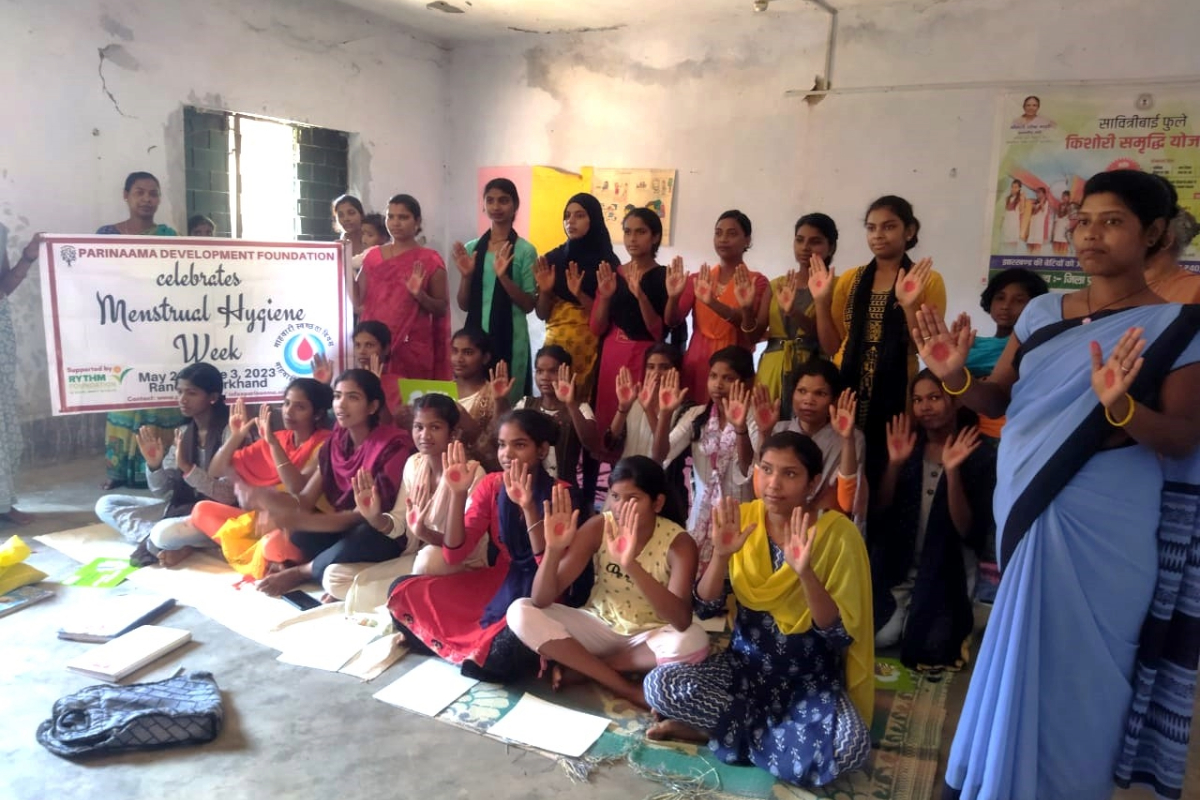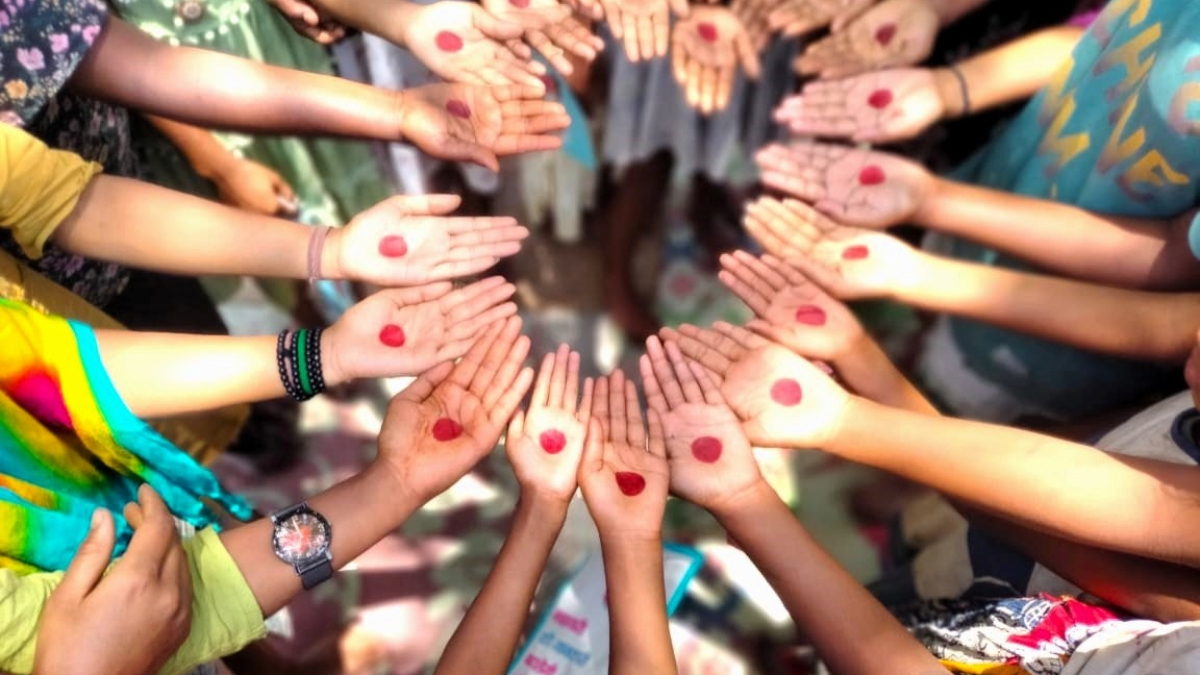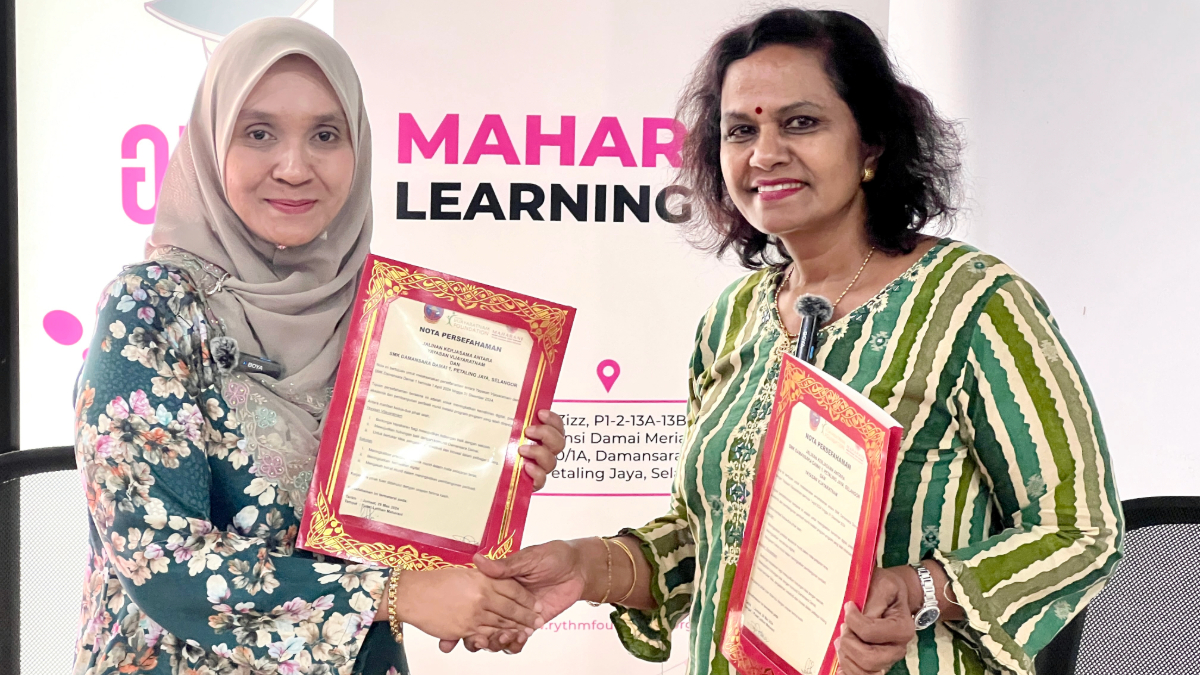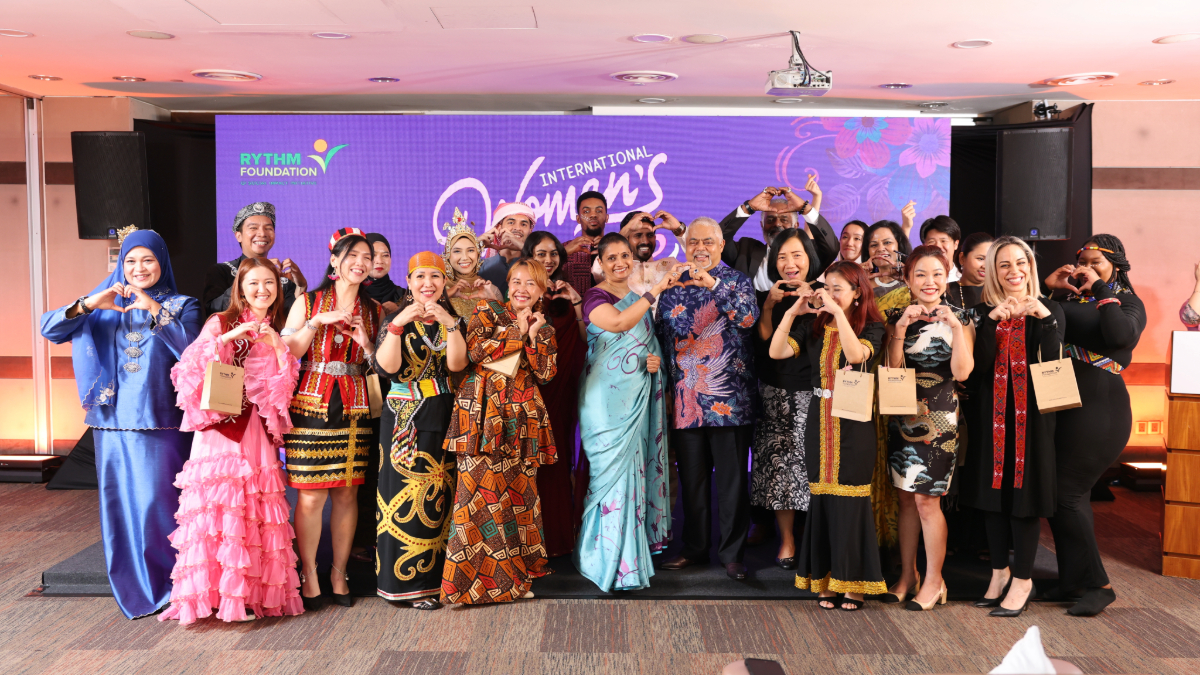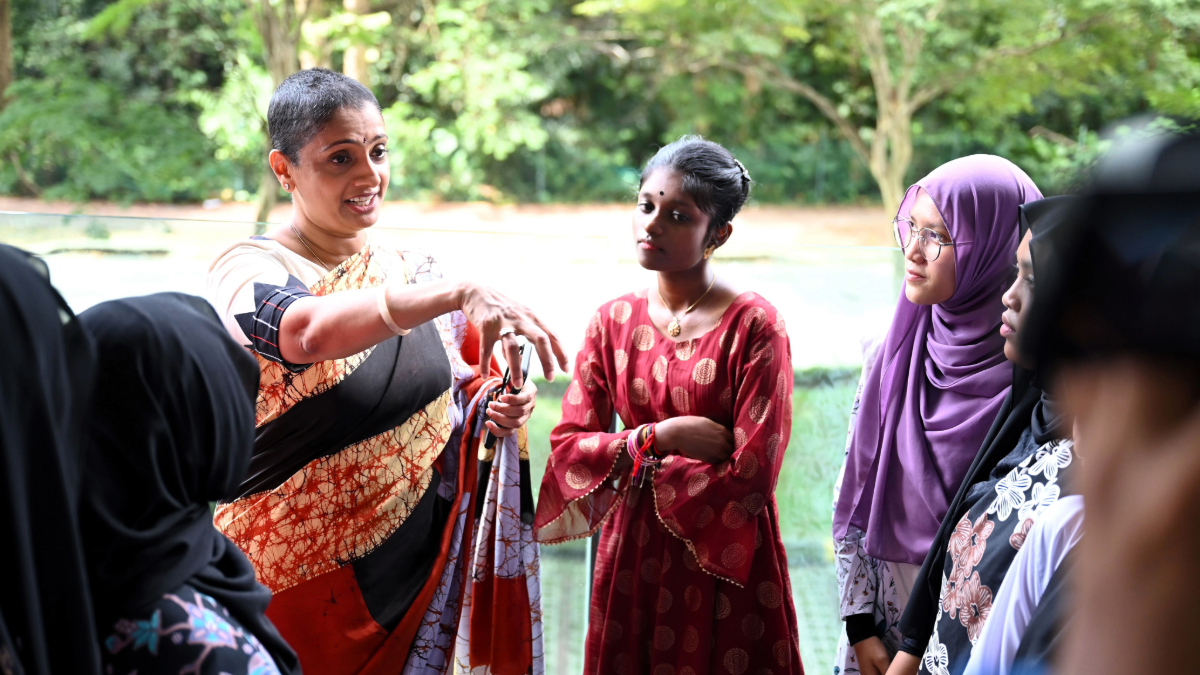In the heart of Eastern India, a quiet yet relentless battle unfolds each day in rural Jharkhand. This region faces a dire lack of basic hygiene and menstrual health practices, compounded by a pressing water crisis that adversely affects tens of thousands of people.
Earlier this year, in response to these pressing challenges, RYTHM Foundation partnered with Parinaama Development Foundation for the ‘Enabling Handwashing, Hygiene and Menstrual Health’ community-led programme.
The six-month initiative disseminated crucial information and education on these facets, reaching over 10,000 adults and children in the affected communities.
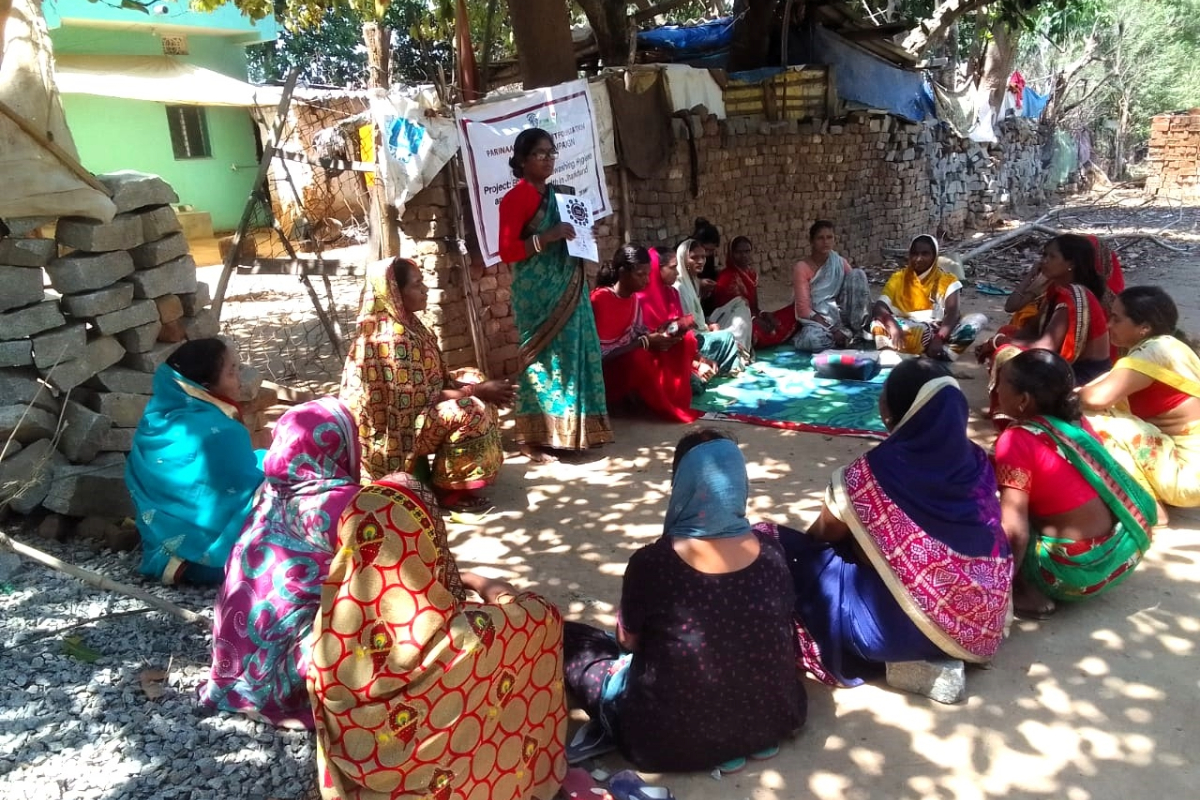
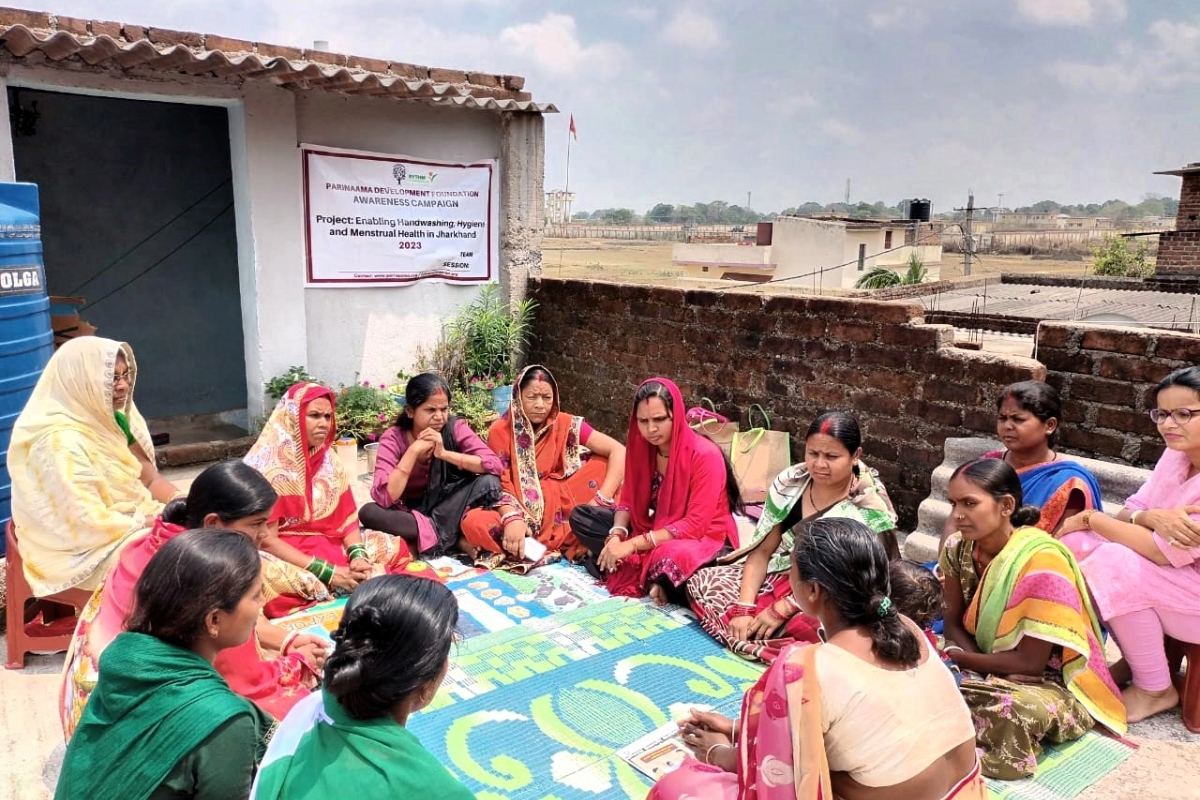
Educating for Change
The marginalised communities in the region’s villages rely primarily on a limited number of rivers, ponds, and wells, which frequently dry up and are polluted.
This scarcity also poses a constant threat of illnesses aggravated by limited healthcare access and an entrenched cycle of poverty.
Villager Shanichakha Devi vividly portrayed the dire conditions, “Our village has two ponds, but one is completely dry. This is the only source of water we have. We wash our clothes here. Buffaloes use this water. This is where women and men bathe. We feel ashamed.”
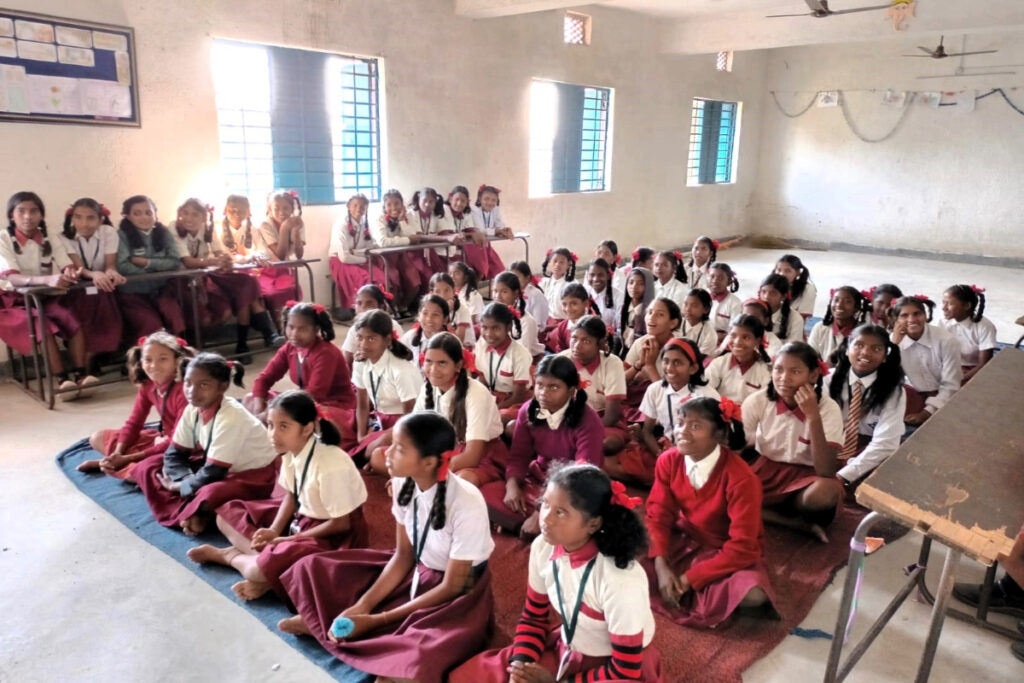
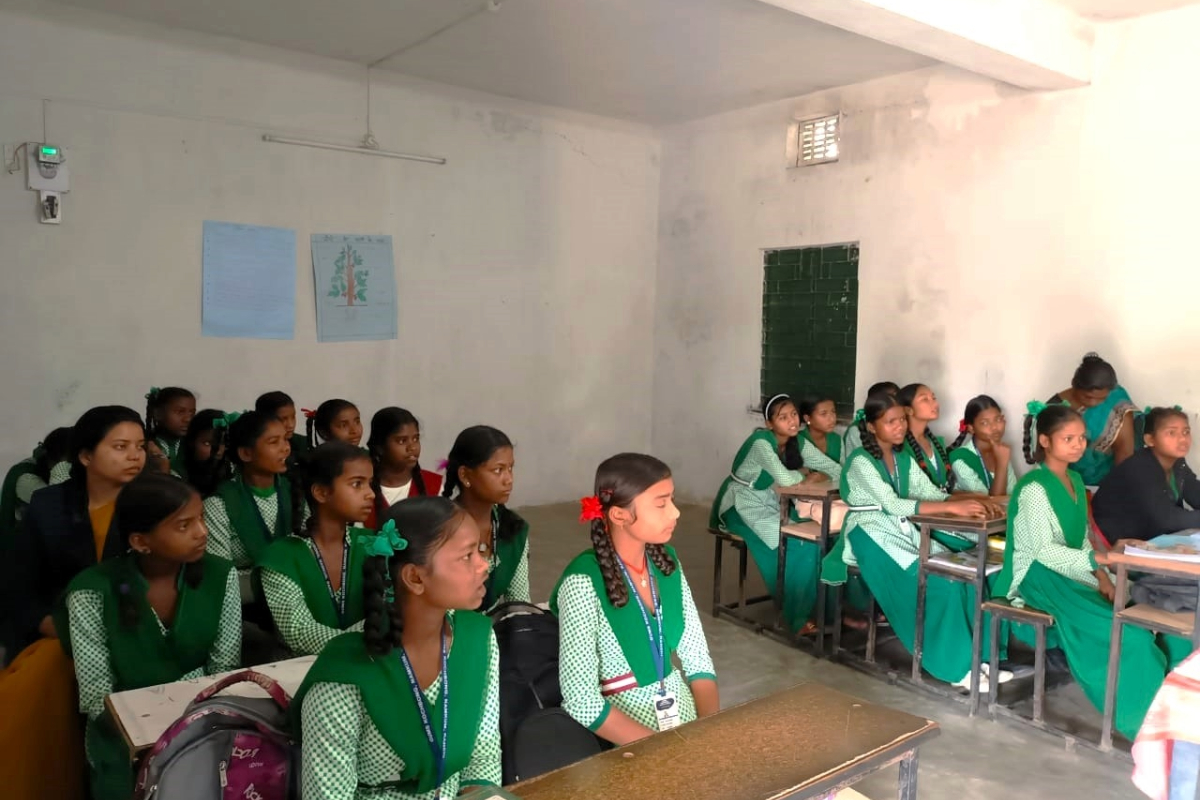
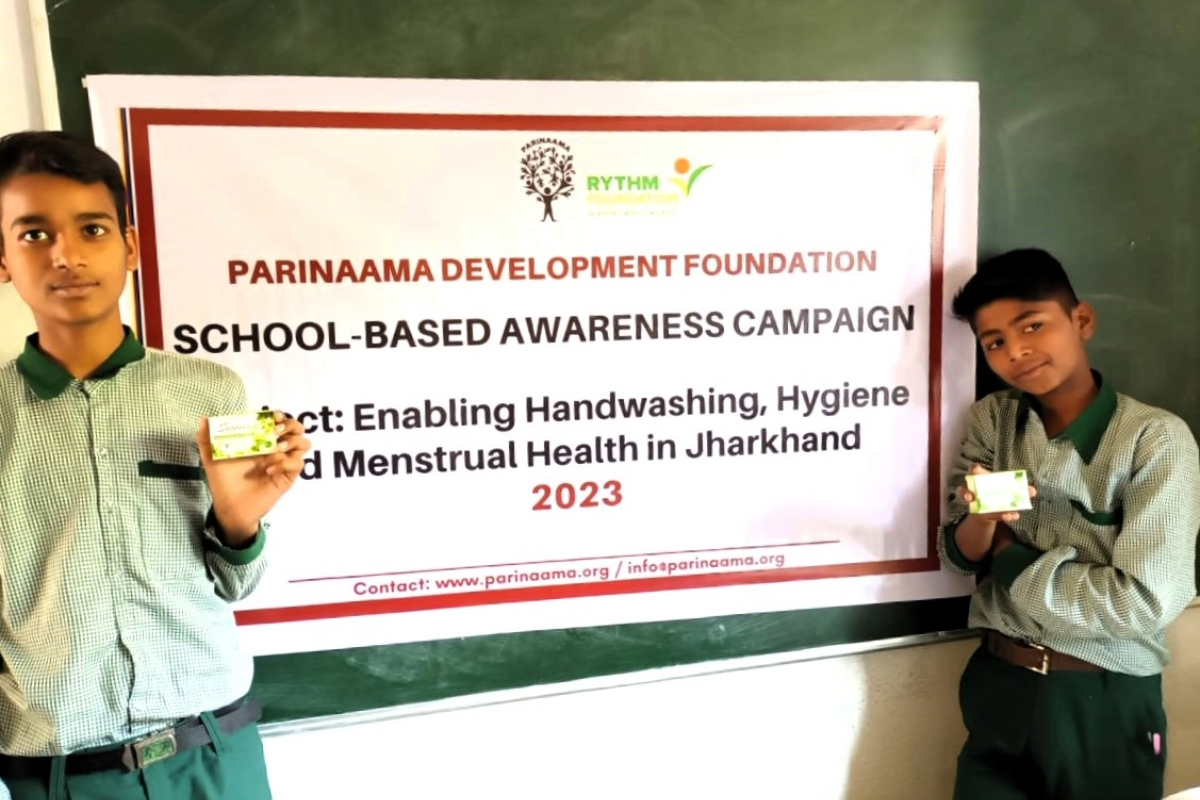
More than a necessity, water is crucial in upholding hygiene, said Santhi Periasamy, the Head of RYTHM Foundation.
“It starts with fundamental handwashing practices,” Santhi said. “It is also crucial in addressing the challenges faced by women, combating the societal stigma surrounding the perception of ‘uncleanliness’ during their natural monthly cycle.”
WATCH THIS: Saving Lives Through Hygiene and Menstrual Health:
Parinaama demonstrated its unwavering commitment and effectiveness with the campaign by reaching communities in 80 villages.
The impressive outreach began with community health volunteers undergoing comprehensive workshops, equipping them to engage villagers and schoolchildren. They then sought women leaders, health workers, and village councils to actively involve the communities in awareness campaigns and rallies.
In schools where sanitation education was already underway, the RYTHM-Parinaama collaboration brought a more intensive and detailed approach.
“The practice was previously unsystematic,” teacher Sangita Das said. “We will encourage the children to follow what they learned through this programme.”
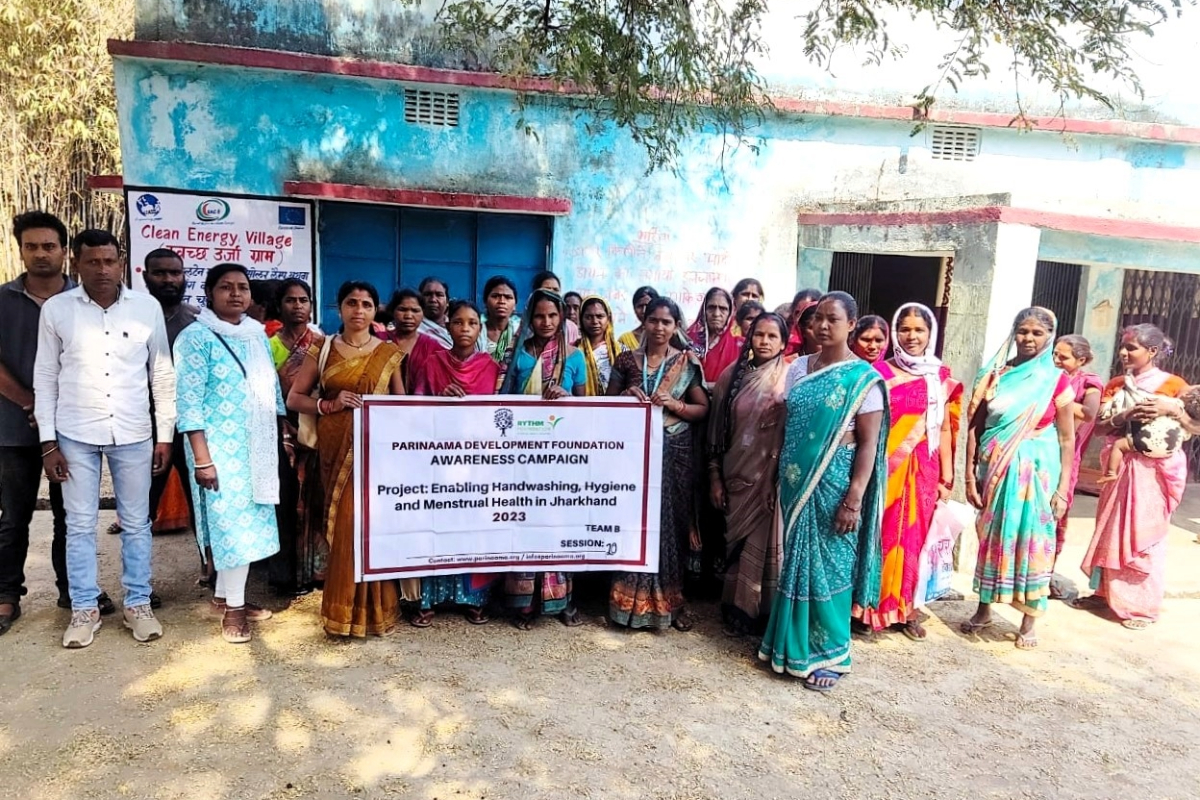
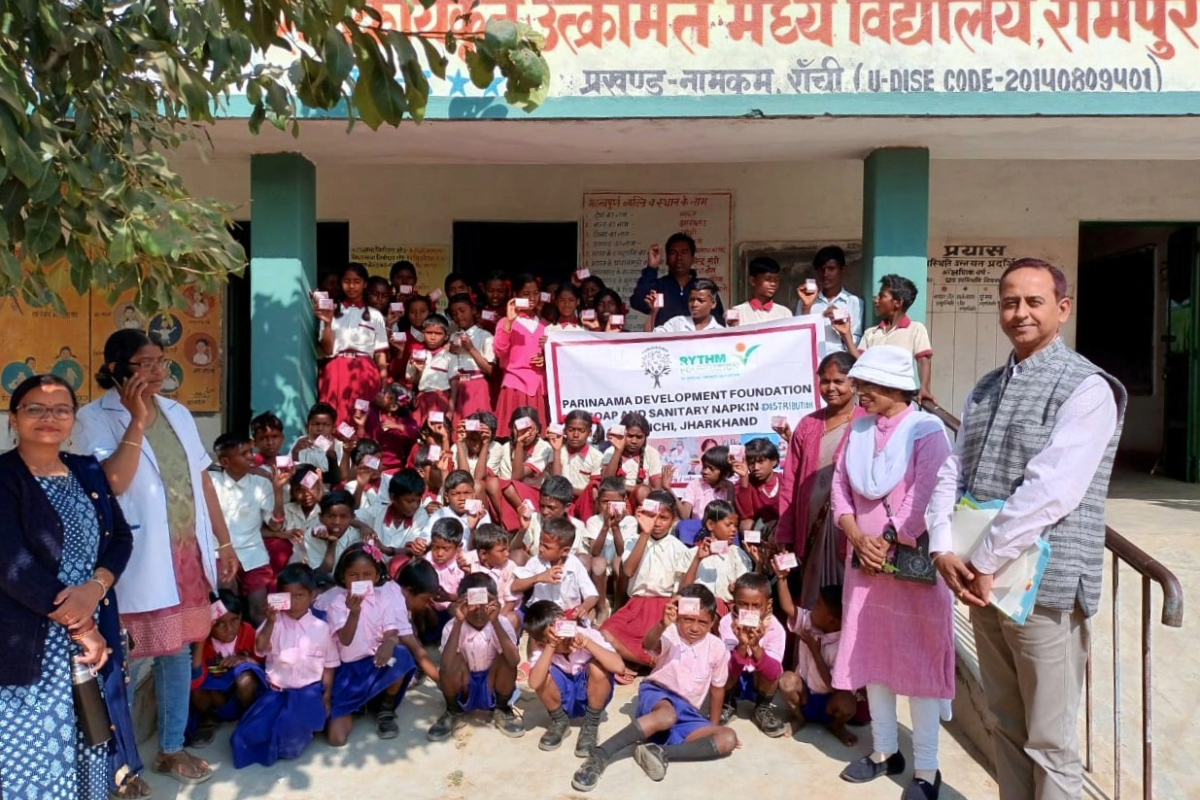
Driving Behaviour Change
Parinaama’s post-programme report highlighted the initiative’s effectiveness in catalysing positive change within the targeted communities.
“We observed a positive behaviour change with community members. Many described adopting regular handwashing practices, using hygienic menstrual products, and advocating for improved community sanitation facilities.
“By increasing knowledge, empowering communities, and driving behaviour change, the project has laid a strong foundation for sustainable improvements,” the report added.
Programme manager Avinash Chaudhary emphasised the programme’s success in sensitising larger groups of people, heightening awareness, and improving daily practices.
“The collaborative efforts of RYTHM Foundation, Parinaama, frontline health workers, and local government representatives certainly played a pivotal role in this transformative journey.”
This initiative stands as a testament to the power of education, community engagement, and collective action in fostering lasting change.
